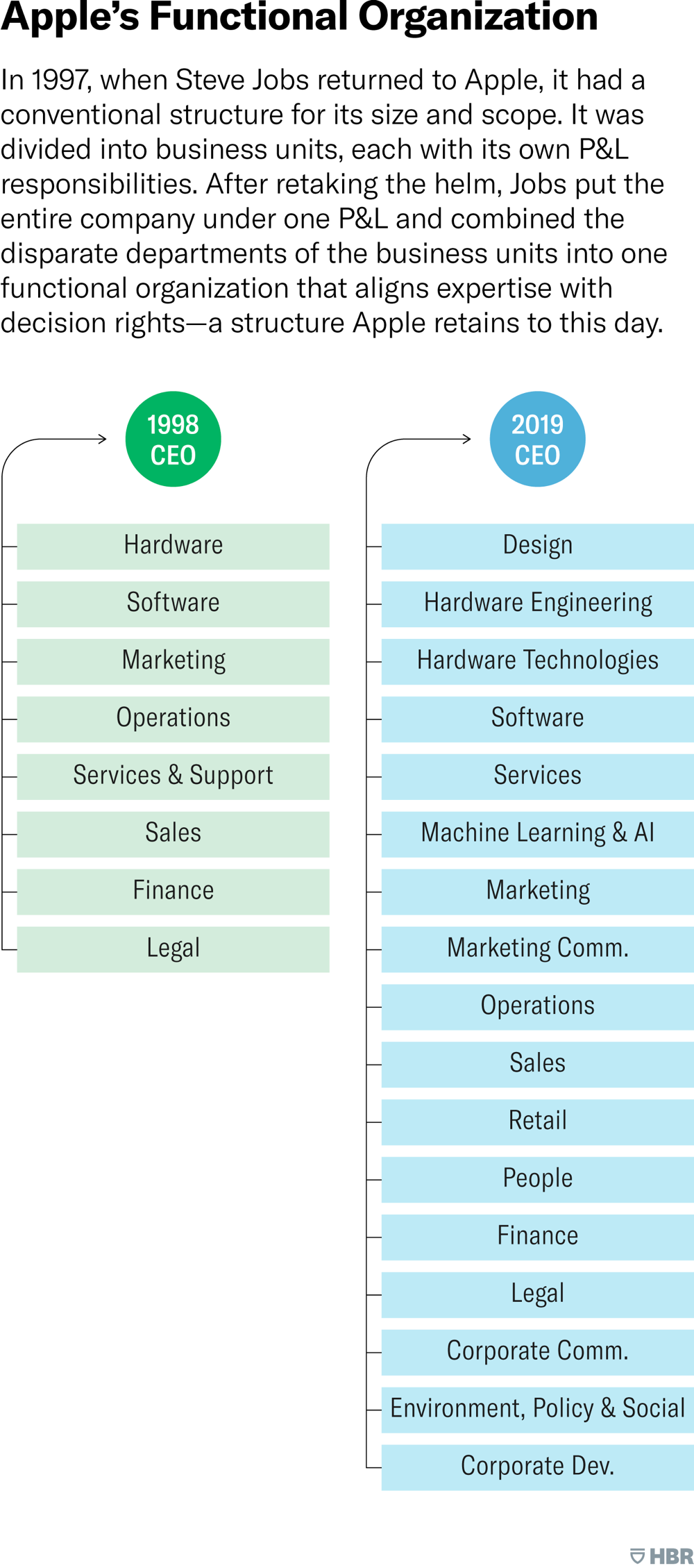
Apple University dean and vice president Joel Podolny today wrote an in-depth article on Apple's organizational structure for Harvard Business Review.

Titled "How Apple is Organized for Innovation," Podolny's piece delves deep into Apple's structure and how that has helped it grow over the years. Starting back when Jobs took over the company when he returned to Apple 1997, Podolny explains how Jobs fired the managers of each individual business unit and converted Apple into "one functional organization," a setup that Apple continues to have to this day.
Apple's structure dictates that the people who have the most expertise and experience in a given domain should have the decision rights for that domain, with the company relying on technical experts rather than managers to make key decisions.As was the case with Jobs before him, CEO Tim Cook occupies the only position on the organizational chart where the design, engineering, operations, marketing, and retail of any of Apple's main products meet. In effect, besides the CEO, the company operates with no conventional general managers: people who control an entire process from product development through sales and are judged according to a P&L statement.

Apple's financial structure, where executive bonuses are based on companywide financial success rather than departmental success, also allows for more freedom when it comes to product decisions because there's not specific financial pressure on a single release. "The finance team is not involved in the product road map meetings of engineering teams, and engineering teams are not involved in pricing decisions," writes Podolny.
All of Apple's managers, from senior vice president and down, are expected to have deep expertise in their area, immersion in detail of the work being done under their leadership, and willingness to collaborate and make collective decisions. "Leaders should know the details of their organization three levels down," is one of Apple's principles.
As Apple has grown, Apple CEO Tim Cook has needed to make adjustments to the structure as Apple enters into new markets and technologies.
Podolny's full piece goes into much more detail on how Apple's internal structure works, complete with many examples of Apple's successes. It can be read in full at Harvard Business Review.The adjustments Tim Cook has implemented in recent years include dividing the hardware function into hardware engineering and hardware technologies; adding artificial intelligence and machine learning as a functional area; and moving human interface out of software to merge it with industrial design, creating an integrated design function.
Article Link: Apple University Dean Shares Deep Dive Into Apple's Organizational Structure

